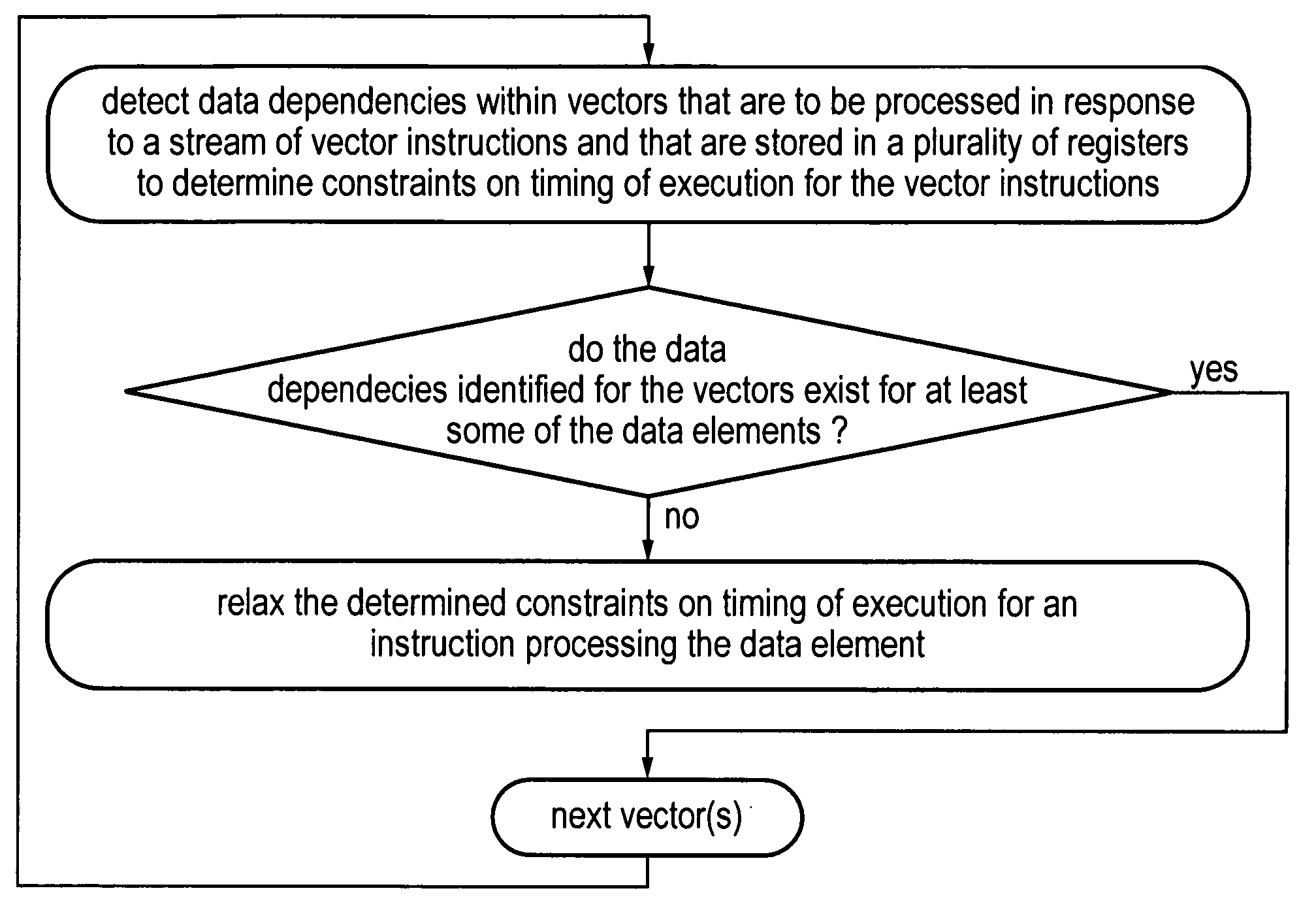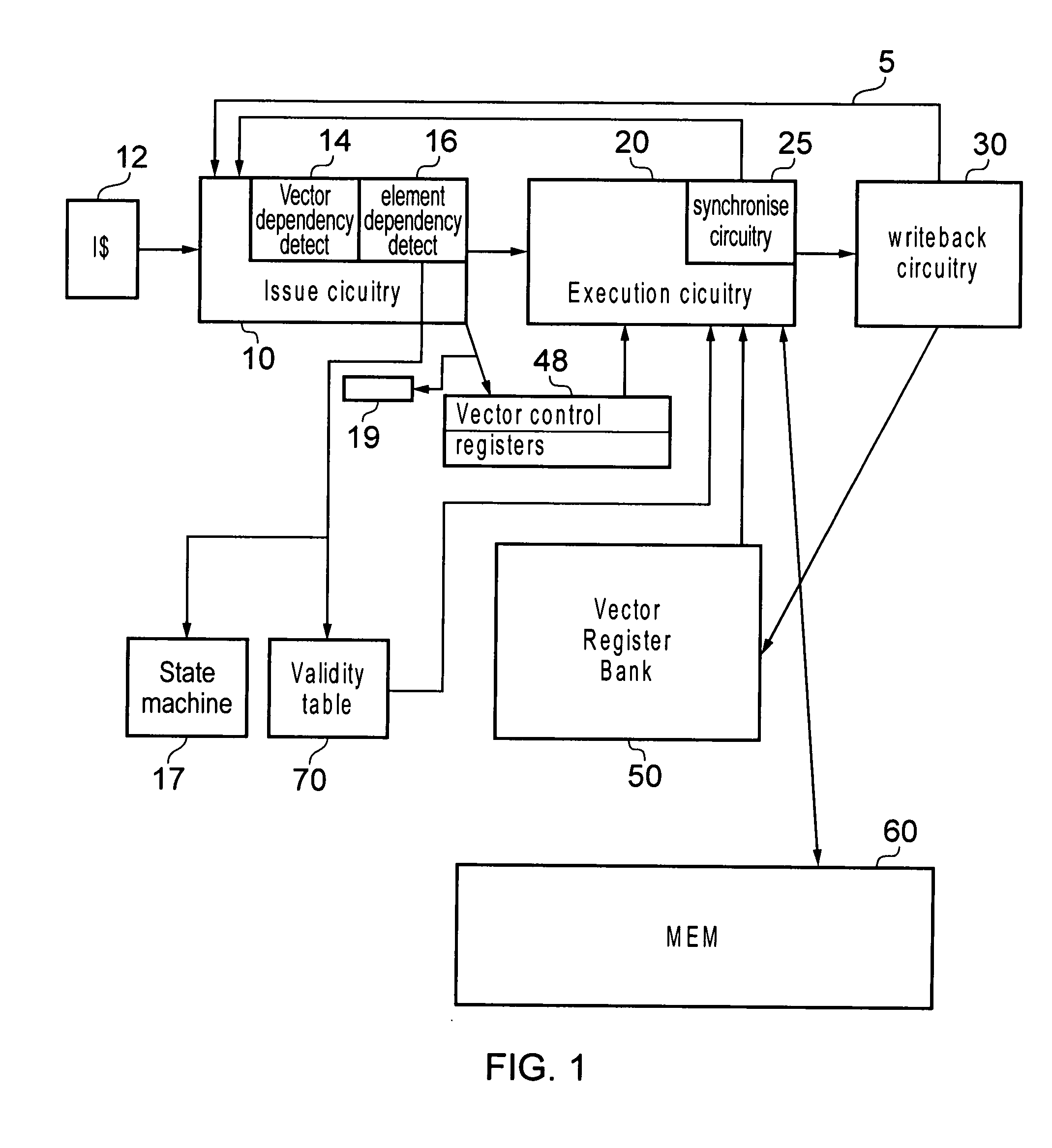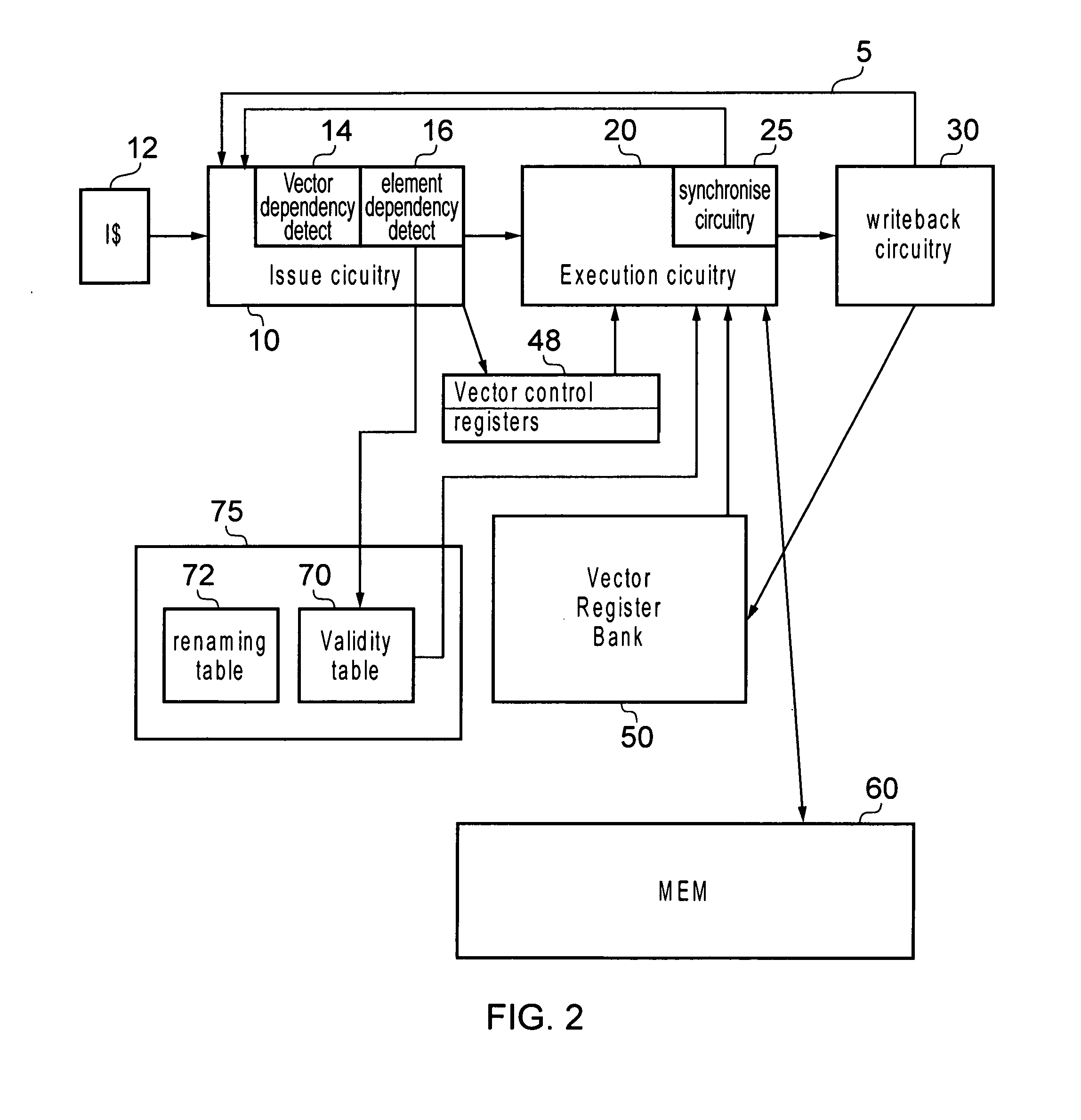Controlling an order for processing data elements during vector processing
a vector processing and order technology, applied in the field of data processing, can solve the problems of high latency and power, the possibility of significant data hazards, and the cost of additional hardware, latency and power, so as to save considerable time and power
- Summary
- Abstract
- Description
- Claims
- Application Information
AI Technical Summary
Benefits of technology
Problems solved by technology
Method used
Image
Examples
Embodiment Construction
[0066]FIG. 1 schematically shows a data processing apparatus according to an embodiment of the present invention. This data processing apparatus is shown very schematically and it will be clear to a skilled person that there may be further interconnections between the circuitry and indeed further circuitry present. In the data processing apparatus shown there is a pipelined processor which comprises issue circuitry 10, execution circuitry 20 and writeback circuitry 30. Issue circuitry 10 retrieves instructions from an instruction cache 12 and decodes these instructions, it also detects data dependencies that arise due to the processing of the vectors and issues the decoded instructions to the execution circuitry.
[0067]Thus, issue circuitry 10 has vector data dependency circuitry 14 which determines data dependencies between the vectors and which receives information from the writeback circuitry 30 which enables it to know when various operations have completed. It also comprises dat...
PUM
 Login to View More
Login to View More Abstract
Description
Claims
Application Information
 Login to View More
Login to View More - R&D
- Intellectual Property
- Life Sciences
- Materials
- Tech Scout
- Unparalleled Data Quality
- Higher Quality Content
- 60% Fewer Hallucinations
Browse by: Latest US Patents, China's latest patents, Technical Efficacy Thesaurus, Application Domain, Technology Topic, Popular Technical Reports.
© 2025 PatSnap. All rights reserved.Legal|Privacy policy|Modern Slavery Act Transparency Statement|Sitemap|About US| Contact US: help@patsnap.com



